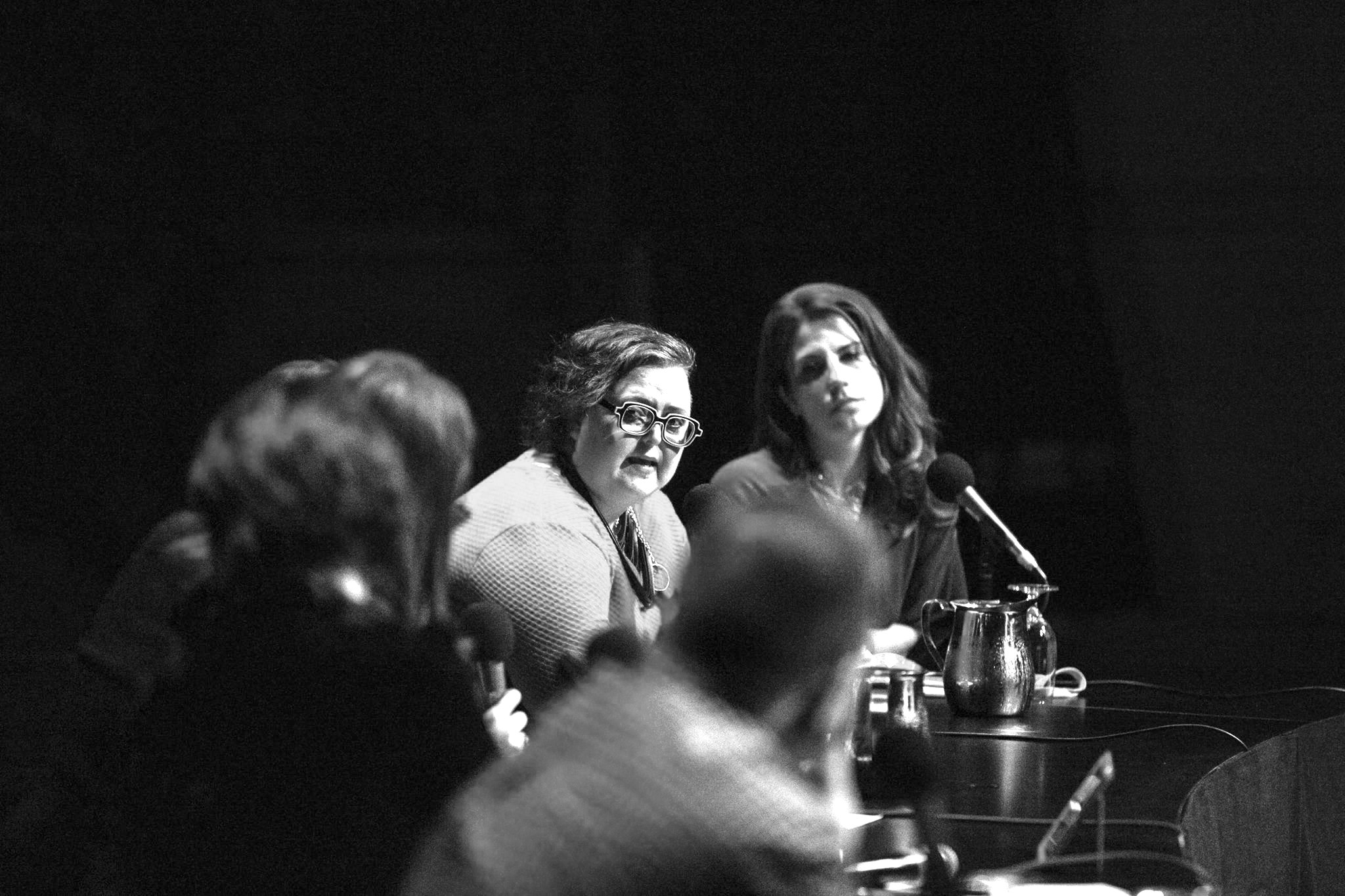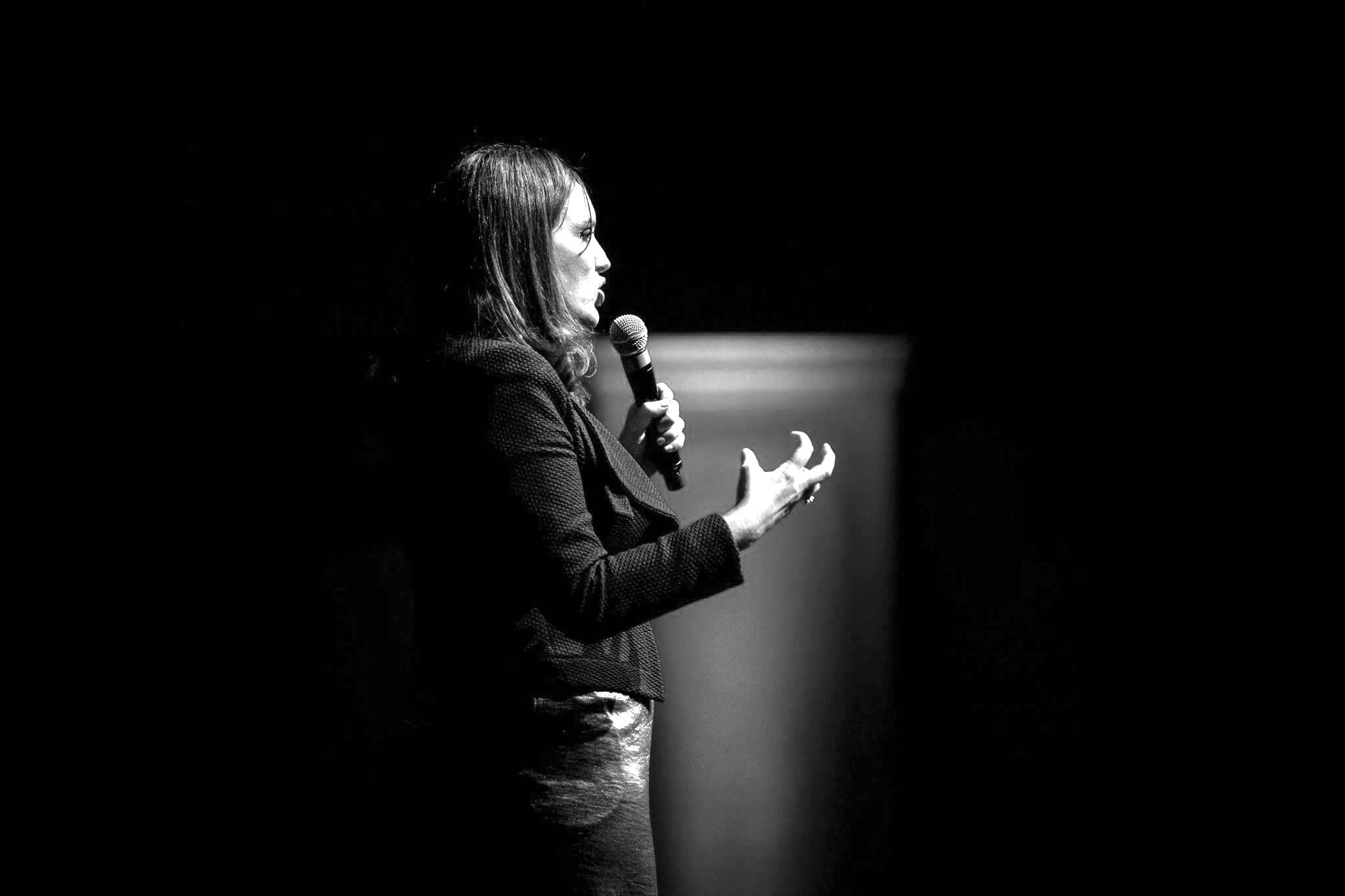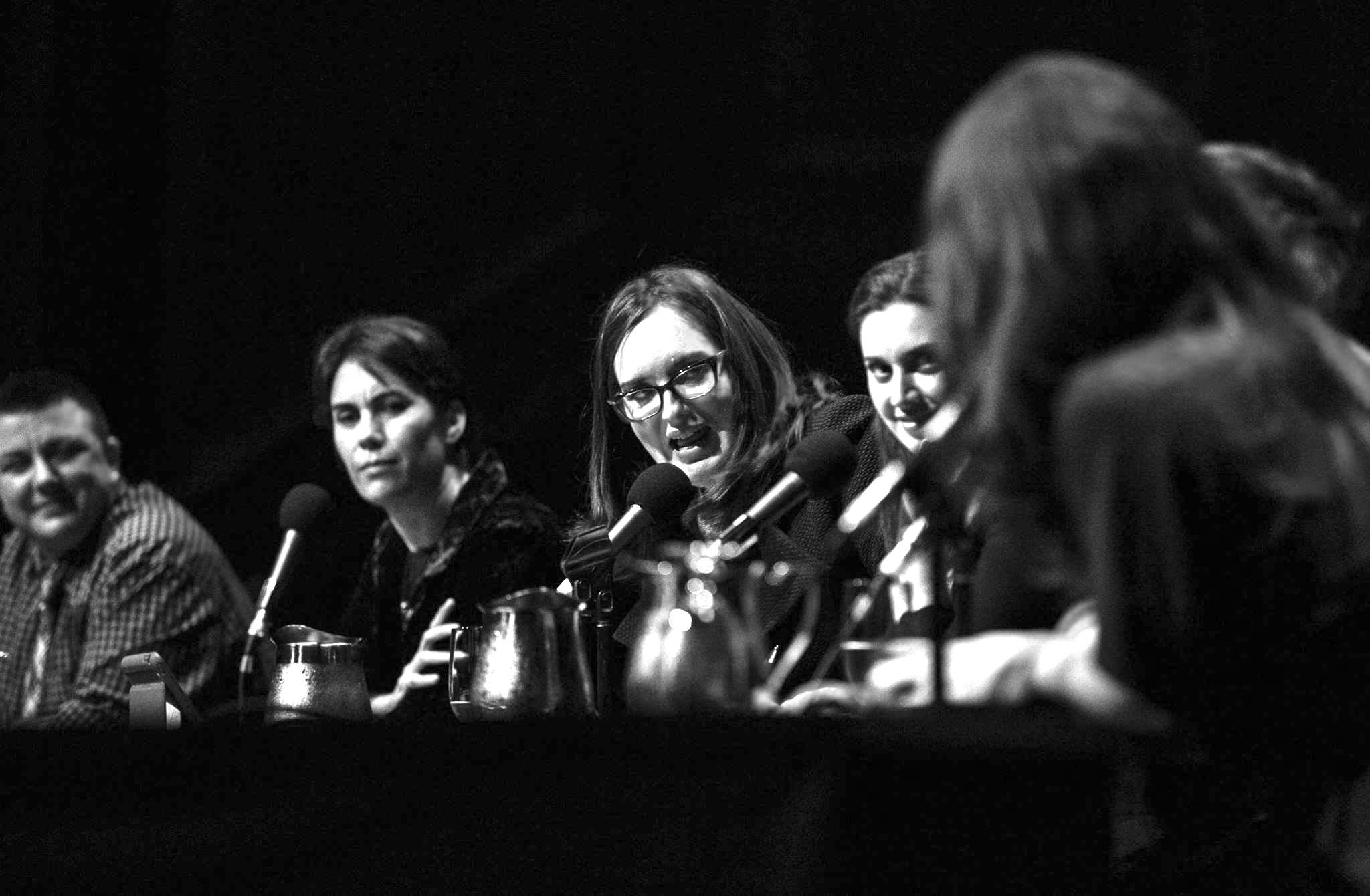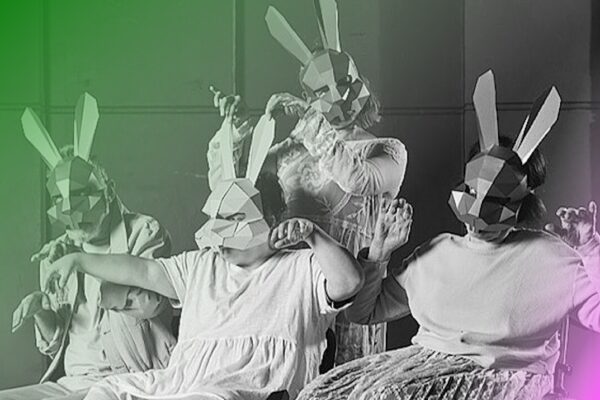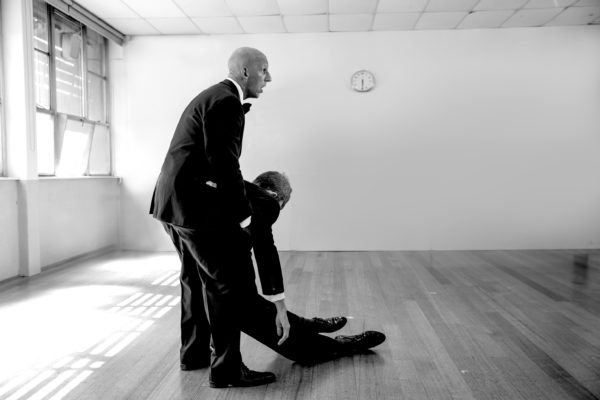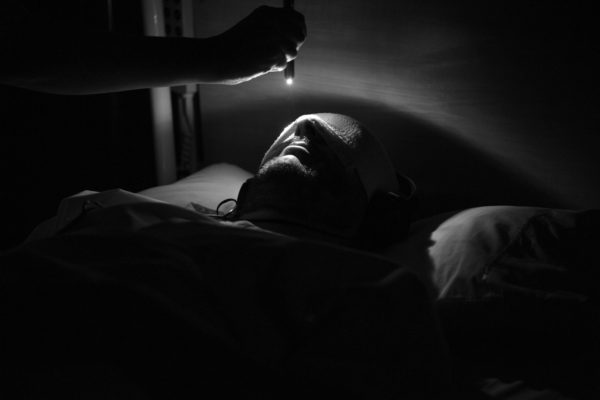TALE OF A HANDMAID
“Better never means better for everyone… It always means worse, for some.” Margaret Atwood’s famous words from The Handmaid’s Tale now ring truer than ever,
In The Handmaid’s Tale’s dystopian America, women are enslaved by the patriarchy, repeatedly raped in what is poorly disguised as ceremony, and subjected to violent and bodily repercussions should they dare disobey. Now, Margaret Atwood’s insight in The Handmaid’s Tale is frighteningly close to the truth. Just recently, Trump has succeeded in finding a path that has seen America pass a twenty-week ban on abortions nationwide. The threats that are imagined and present throughout the literature are eerily reflective of our own current state of affairs.
Presented by The Wheeler Centre in collaboration with The Guilty Feminist Podcast, What The Hell? The Handmaid’s Tale in 2017 delved into the feminist ideal, looking deeply at the screen adaption. Issues discussed included the complete erasure of Atwood’s clear attempts in her work to define deep and violent racism, effectively whitewashing the source material for the screen.
Host Deborah Frances-White was joined by panel members Jamila Rizvi, Celeste Liddle, Krissy Kneen, Quinn Eades and Lauren Duca. They questioned and approached this work with diverse but also often shared opinions, the conversation oscillating between deep anger and hurt. Some of the most potent moments linger after they discuss the normality of situations in the show that should not be normal. For example, when Offred returns home, sitting with her best friend, she discovers their redundancy and that their bank accounts have been frozen. The panel emphatically agrees that her partner’s response, “Don’t worry, I’ll take care of you,” is not in fact reassuring; with her financial freedom removed, Offred is now dependent on her partner, losing her freedom of choice..
The parallels between state and church are discussed, as are the elements of sex work and the Jezebel Club, class systems, and the non-active nature of roles offered to women. Post-discussion, the strongest sense that lingers is one of revolution and desire for change; this carries a renewed strength in knowing that we are not alone. Other highlights of the discussion include the introduction of the concept of gender fluidity as the worst enemy of the patriarchy. In fact, when we think of this, and we think of the revolt against the system in The Handmaid’s Tale, Trans people are perhaps the closest embodiment; they live their full selves despite knowing what it will cost them, including acts of violence, ostracism and ridicule.
This was a lively and rallying panel discussion that saw large crowds drawn to The Melbourne Town Hall, perhaps providing proof of Melbourne’s ever-progressive hunger for justice. Particularly given Australia’s growing similarities to modern American culture and politics, it’s scary how close to the truth The Handmaid’s Tale is in 2017.
Photo credit; Jon Tjhia / The Wheeler Centre

